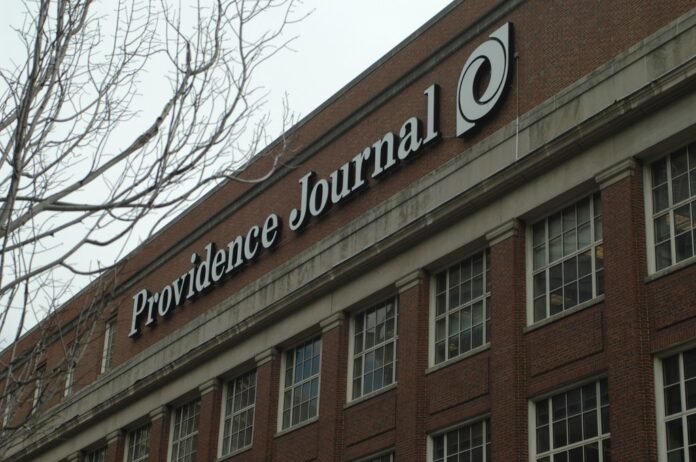
NEW YORK – New Media Investment Group Inc. agreed to acquire Gannett Co. in a $1.38 billion deal that unites the two biggest United States daily newspaper chains in an industry that’s consolidating to survive.
The merged entity will be a local news giant that owns more than one-sixth of all daily newspapers in the country, including USA Today, and reaches nearly 9 million print readers, according to industry analyst Ken Doctor. All told, it will have 263 daily media outlets across 47 states.
New Media Investment Group owns and operates several papers in the Rhode Island and Massachusetts market, including the Providence Journal, The Taunton Gazette, The Newport Daily News, The Cape Cod Times, Fall River Herald News, The Worcester Telegram and The New Bedford Standard-Times.
The acquisition also sets the stage for further cutbacks in an industry already reeling from them. The companies said the deal will better allow them to provide marketing services to local businesses, deliver local journalism to communities and transition to a digital future. But they also said they anticipate about $300 million in cost savings each year from the transaction, which could lead to further cuts to news staffs. The combined company said it would invest in its newsrooms and search for cost reductions “in a judicious manner.”
New Media plans to pay cash and shares worth $12.06 a Gannett share, leaving Gannett holders with about 49.5% of the combined company. Gannett investors applauded the long-beleaguered company finding a buyer, sending shares up as much as 5.1%. New Media shareholders, meanwhile, were skeptical that the deal would pay off. Its stock lost as much as 8.6%.
The deal comes just months after Gannett fought off a hostile takeover bid by MNG Enterprises Inc., which is backed by the hedge fund Alden Global Capital. It also increases pressure on other local newspaper owners, such as Tribune Publishing Co., Lee Enterprises Inc. and McClatchy Co., to find deals of their own.
Downward spiral
The newspaper industry has been in a downward spiral for years as the internet has upended its business model. Readers have moved online and get their news from social media, eroding print advertising sales. Much of the online ad market, meanwhile, is being gobbled up by Facebook and Google. And many newspapers have eroded their quality by ordering deep cuts to their newsrooms, making it increasingly difficult to persuade readers to pay for online subscriptions.
Newspaper executives see few options other than consolidation to cut even more costs, from sharing printing operations to eliminating local copy editors and designers. The number of newspaper newsroom employees dropped by 47% between 2008 and 2018, from about 71,000 workers to 38,000, according to Pew Research Center.
The deal further solidifies the power of private equity firms and hedge funds in the newspaper business. New Media is managed and controlled by private equity firm Fortress Investment Group. Alden Global owns about 60 daily newspapers, including the Denver Post, through MNG, also known as Digital First Media. The hedge fund Chatham Asset Management LLC is one of the largest shareholders and bondholders in McClatchy, publisher of the Charlotte Observer and Miami Herald.
After emerging from bankruptcy in 2013, New Media has been on a buying spree and now owns almost 150 newspapers in smaller cities like Columbus, Ohio, and Providence, Rhode Island. Like its peers, it has developed a reputation for cutting staff from its newsrooms.
‘Unproductive’ reporters
In an interview with Bloomberg News last year, New Media CEO Michael E. Reed said the reporters who have been dismissed were highly paid but unproductive. The company is asking the remaining reporters to write more articles. The company has also eliminated local copy editors and designers and moved those jobs to a central hub in Austin, Texas, where it has hired more than 300 people.
Reed will retain the positions of chairman and CEO in the new business. Gannett’s newly appointed CEO, Paul Bascobert, will be CEO of the company’s operating subsidiary. Bascobert is a former president of Bloomberg Businessweek, which – like Bloomberg News – is a unit of Bloomberg LP.
The companies expect the merger to close by the end of the year. New Media and its subsidiary, GateHouse, will operate thereafter under the Gannett brand name.
Gannett shares were already up 25% this year before Monday’s rally, fueled by takeover speculation. New Media was down 11%.
Gerry Smith is a reporter for Bloomberg News.












